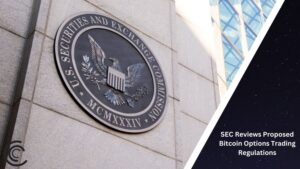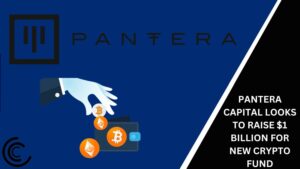Key Takeaways:
- O.F.A.C. has been investigating Kraken since 2019 and is expected to impose a fine.
- According to sources, Kraken has violated U.S. sanctions by also opening accounts in Syria and Cuba.
- The U.S. imposed sanctions on Iran in 1979, prohibiting the export of goods or services to people or entities in the country.
- Recently, Binance was also accused of servicing users in Iran, violating sanctions.
Crypto Exchanges Kraken reportedly is facing an investigation by the U.S. Treasury Department for allowing users in Iran to buy, and sell digital tokens in violation of federal sanctions. According to New York Times, The Treasury Department’s Office of Foreign Assets Control (O.F.A.C.) has been investigating Kraken since 2019 and is expected to impose a fine.
The United States imposed sanctions on Iran in 1979, prohibiting the export of goods or services to people or entities in the country. Sanctions are penalties levied against a country, its officials, or private citizens, either as punishment or to provide disincentives for the targeted policies and actions.
The violating sanctions issue emerged back in November 2019 when a former Kraken employee issued a lawsuit accusing the start-up of generating revenue from accounts in countries that were under sanctions. Following this, Kraken came under O.F.A.C.’s scanner, which started looking into the exchange’s accounts in Iran.
According to sources, Kraken has violated U.S. sanctions by opening accounts in Syria and Cuba. According to a spreadsheet accessed by NYT, Kraken had 1,522 users with residences in Iran, 149 in Syria, and 83 in Cuba.
Kraken and its Tussle with Authority
Kraken and its C.E.O. Powell have always had a carefree attitude towards federal authorities and their orders. Jesse Powell has always been vocal about his willingness to challenge regulations he deems unfair, including international sanctions
In a memo released in June, Kraken stressed that they do not condone weaponization of the financial system and will not voluntarily de-platform controversial but law-abiding individuals or businesses. The exchange further promised to “engage in disputes with government agencies where outdated laws are unfairly exclusionary.”
In 2019, Jesse Powell, Kraken’s C.E.O., hinted that he would consider breaking the law in a wide range of situations if the advantages to the firm outweighed potential penalties, according to messages accessed by NYT. Powell, one of the early proponents of Bitcoin, had earlier said” Not following the law would by default be ‘ill-advised,’ but it always has to be considered as an option.”
Further, he is against the U.S. imposing sanctions on Russia following Ukraine Invasion. He stands against the calls to freeze the accounts of Kraken’s Russian users.
This attitude towards law has landed the exchange sometimes in trouble. In 2021, Commodity Futures Trading Commission (CFTC) levied a $1.25 million penalty for offering Illegal Off-Exchange Digital Asset Trading and for failing to register.
Violating Sanctions in the Crypto world
The Federal Government has recently increased scrutinization of companies it believes to have violated sanctions. In 2021, the Treasury Department warned that cryptocurrencies “potentially reduce the efficacy of American sanctions.” It released a 30-page compliance manual suggesting that crypto firms use geolocation tools to weed out customers in restricted regions. However, many big names in the crypto industry continue to service users falling under the restricted regions.
Binance- the world’s largest crypto exchange has faced accusations of violating U.S. sanctions by allowing Iranian users to place trades. In 2020, digital wallet service provider-BitGo, a digital wallet service provider, was fined $98,000 for 183 apparent sanctions violations. O.F.A.C. has also fined BitPay over $500,000 for over 2000 sanction violations. In 2021, Coinbase sent notices to O.F.A.C. flagging transactions that may have violated U.S. sanctions.
Kraken, founded in 2011, has earned a reputation owing to its outspoken C.E.O. and its unconventional ways of functioning. According to CrunchBase, Kraken is privately held and funded by 36 investors. Kraken has raised a total of $136.1M in funding over 22 rounds. Their latest funding was raised on Dec 1, 2021, from a Secondary Market round.
As the crypto industry repeatedly comes under the scanner of federal authorities, crypto firms should take special care to avoid getting caught in the federal government’s crosshairs.











